Play is more than just fun and games – it’s a crucial part of every child’s development. For children with autism, developing play skills can be both challenging and transformative. Let’s explore how ABA therapy and play skills work together to create meaningful learning experiences.
Understanding ABA Therapy and Play Skills in children
Play skills form the backbone of childhood development. Through play, children learn essential life skills, from basic motor functions to complex social interactions. For children with autism spectrum disorder, structured play becomes an invaluable teaching tool. Understanding how play develops naturally helps us support children more effectively in their journey.
Success Stories
“Move Up ABA has been a lifeline for our family. Before starting therapy, our son struggled with daily routines and communication. Now, he’s more independent and even initiated a conversation with a classmate for the first time! The progress we’ve seen in just six months is truly remarkable.”
- Emily R., Silver Spring, Accountant
“As a single dad, I was overwhelmed trying to manage my child’s behavior. The Move Up ABA team not only provided amazing support for my little girl but also taught me practical strategies to use at home. Their in-home sessions fit perfectly with our busy schedule. I’m so grateful for their patience and expertise.”
- Michael T., Rockville, Middle School Teacher
“We were hesitant about starting ABA therapy, but Move Up ABA’s approach put us at ease from day one. Our twins have made incredible strides in their social skills and self-regulation. The therapists are like extended family now, and we couldn’t be happier with our decision to work with them.”
- Aisha and James L., Simpson, Police Officers
The Building Blocks of Play Behaviors
Every child’s play development follows a natural progression as they grow and learn. For children with autism spectrum disorder, understanding these stages helps support their play skills development. Let’s explore how children typically progress through different play behaviors:
Solitary Play: The First Stage

During solitary play, children engage in independent exploration of their own toys and play environments. You might see your child:
Spending time with their own toys without acknowledging other children
Developing essential skills through individual play activities
Building cognitive abilities through focused attention on single tasks
Learning about cause and effect through independent exploration
This stage is crucial for developing play skills and creating a foundation for future social interaction.
Onlooker Play: Learning Through Observation
As typically developing peers play nearby, children in this stage:
Watch other children’s play behaviors with interest
Study social interactions from a comfortable distance
Begin understanding play sequences by observing
Process how children engage in cooperative play
This stage marks significant growth in social awareness and play development.
Parallel Play: Side-by-Side Development
In this important transitional phase, children:
Play alongside other children without direct interaction
Begin showing interest in their peers’ play experiences
Mimic play behaviors they observe in others
Start developing awareness of appropriate play behaviors
This stage builds a bridge between solitary and interactive play.
Interactive Play: Building Social Connections
The final stage brings together all previous learning as children:
Engage actively with typically developing peers
Practice communication skills through play
Develop problem solving skills in group settings
Experience fulfilling play experiences with others
Teaching Play Skills Through ABA Strategies
Applied behavior analysis offers structured approaches that create meaningful learning opportunities through play. Here’s how these strategies work in everyday situations:
Discrete Trial Training (DTT)
This systematic approach breaks down play skills into manageable steps:
Teaching basic play sequences
Supporting motor skills development
Encouraging appropriate play behaviors
Building confidence through positive reinforcement
For example, teaching ball play progresses naturally: We begin with simply holding the ball, offering immediate praise and favorite stickers for success. Once mastered, we move to rolling the ball, using gentle hand guidance and celebrating with high-fives. Finally, we teach rolling to another person, making each exchange fun and rewarding.
Similarly, with block play:
Starting: Learning to hold and place single blocks
Progress: Creating two-block towers with support
Advanced: Building multi-block structures independently
Mastery: Completing complex building challenges
Natural Environment Teaching (NET)
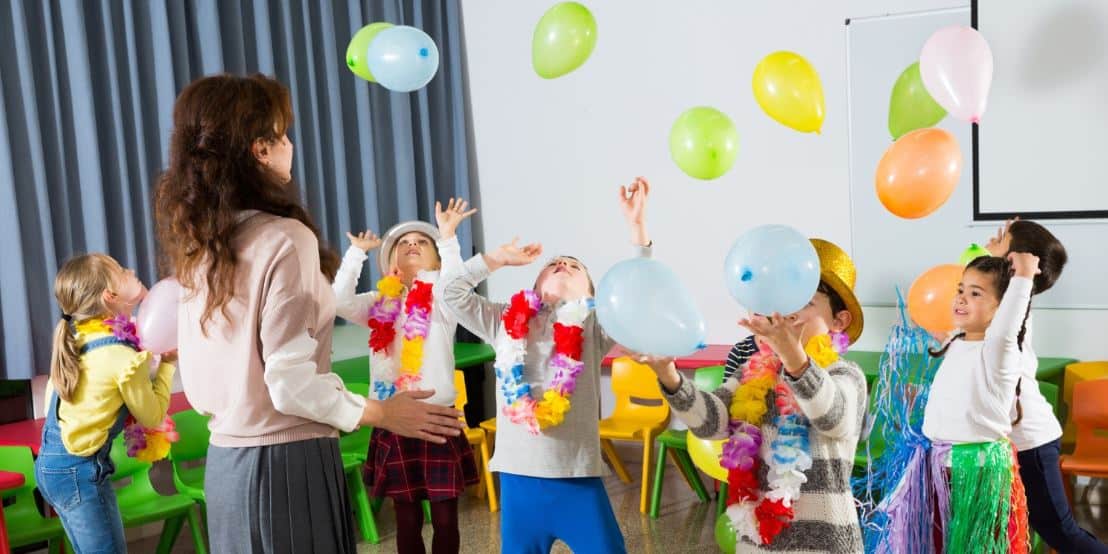
This strategy takes advantage of natural environments to promote:
Spontaneous play in everyday settings
Child’s unique interests and motivations
Social interaction in familiar contexts
Skill development through daily activities
Daily activities become learning opportunities: During mealtimes, we practice colors with different foods, count snack pieces, and learn phrases like “more please.” Bath time transforms into lessons about “empty” and “full” with water play, while outdoor activities naturally teach concepts like wet/dry through puddle play.
Key learning moments include:
Mealtime: Colors, counting, communication
Bath time: Concepts, body parts, numbers
Outdoor play: Nature, movement, exploration
Pivotal Response Training (PRT)
This child-directed approach focuses on:
Following the child’s lead in play activities
Using the child’s interests to encourage engagement
Teaching essential skills through preferred activities
Supporting cognitive development naturally
Real-life applications based on interests: For train enthusiasts, we set up tracks to practice planning, use cargo for counting, and create scenarios for sharing. Animal lovers might explore through pretend zoo play, learning names, sounds, and developing empathy through veterinary play.
Popular interest-based activities:
Trains: Planning, counting, sharing
Animals: Names, movements, empathy
Art: Colors, shapes, social skills
Each approach builds on natural interests while developing crucial skills through play. The key is making learning enjoyable while celebrating each small success along the way.
Creating Supportive Play Environments
The right environment can make significant improvements in a child’s development. Consider these elements:
Organized Play Spaces
Create defined areas that support:
Different types of play experiences
Social skills development
Interactive play opportunities
Cognitive abilities growth
Sensory Play Opportunities
Include activities that encourage:
Sensory exploration
Motor skills development
Problem solving skills
Social interaction through shared experiences
Appropriate Play Materials
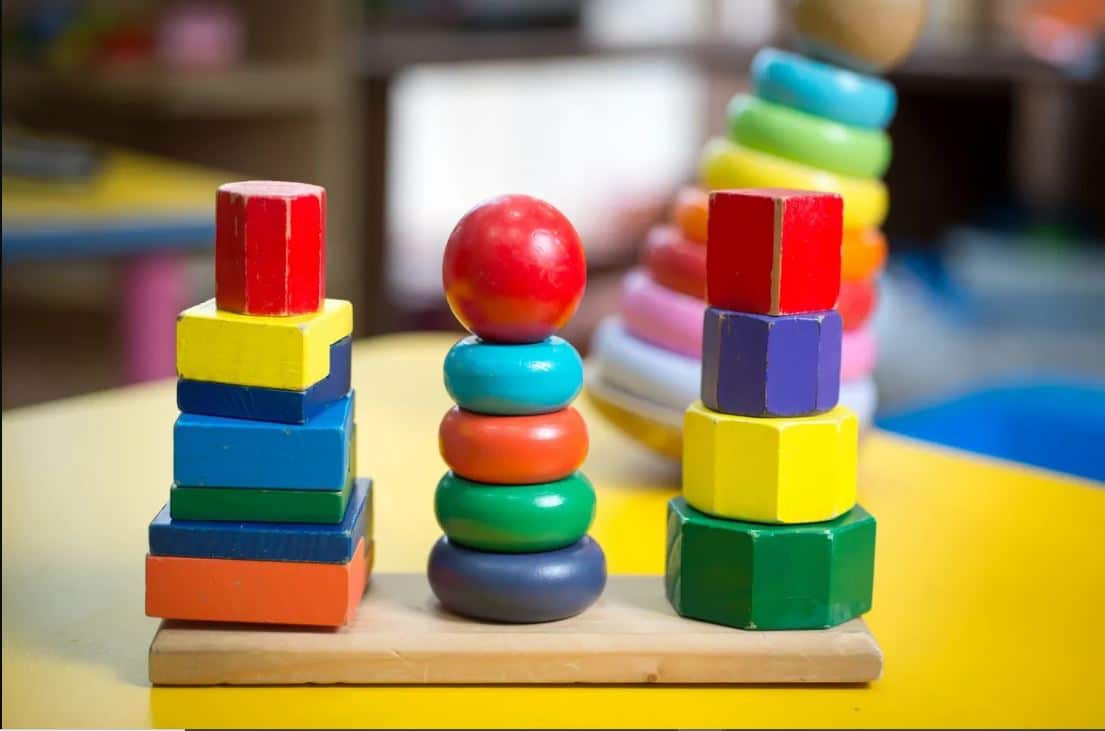
Select toys and materials that:
Match developmental levels
Support skill development
Encourage pretend play scenarios
Foster social interaction
Adult Presence
Maintain supportive supervision that:
Encourages engagement
Provides positive reinforcement
Supports children’s growth
Creates opportunities for direct interaction
These environmental considerations set the stage for meaningful play experiences.
Social Skills Development Through Play
For children with autism spectrum disorder, structured play activities naturally develop essential life skills and appropriate play behaviors. Here’s how different aspects of play support development:
Communication Skills Through Play
Learning to request toys and activities
Using words instead of gestures during play
Practicing conversation during pretend play scenarios
Developing turn-taking language in games
Problem Solving Through Play
Finding solutions when building with blocks
Working through puzzle challenges
Negotiating toy sharing with peers
Learning cause and effect through play sequences
Social Interaction Development
Engaging with typically developing peers
Learning to read social cues during play
Practicing appropriate play behaviors
Building relationships through shared activities
Cognitive Growth
Understanding play rules and sequences
Developing memory through games
Learning patterns through repetitive play
Strengthening focus and attention
Encouraging Cooperative Play
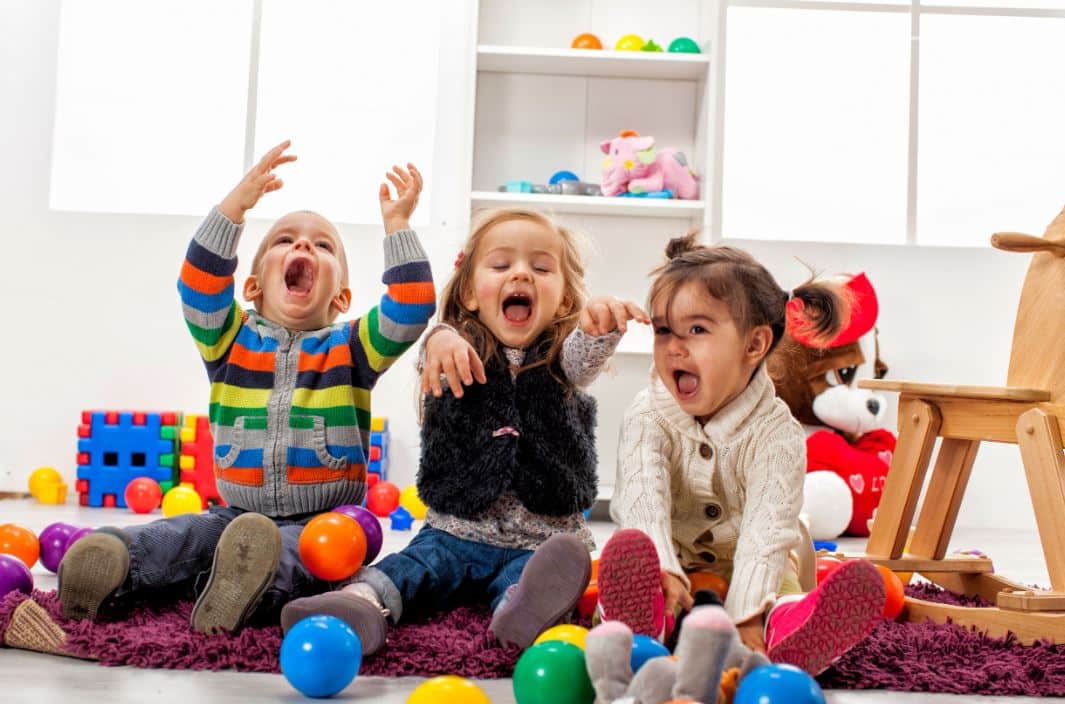
Building on fundamental play skills, children benefit from structured opportunities for social interaction. Our approach includes:
Peer Engagement Strategies
Partnered activities with typically developing peers
Group games that encourage social interaction
Structured play dates with supportive environment
Guided interactive play sessions
Toy Sharing Practice
Teaching turn-taking with own toys
Creating opportunities for natural sharing
Modeling appropriate play behaviors
Supporting positive social interactions
Positive Reinforcement Methods
Celebrating successful sharing moments
Encouraging cooperative play behaviors
Supporting children’s social growth
Recognizing positive interactions
Pretend Play Development
Creating engaging pretend play scenarios
Supporting imaginative play skills
Encouraging social role-playing
Building communication through play.
The Role of Imaginative Play
As play skills advance, pretend play becomes a powerful tool for development:
Enhanced Cognitive Development
Problem solving through creative scenarios
Understanding abstract concepts
Developing sequential thinking
Building planning skills
Social Skills Growth
Practice taking others’ perspectives
Learning social roles through play
Developing empathy and understanding
Building cooperative play skills
Problem-Solving Expansion
Creating solutions in play scenarios
Working through pretend challenges
Developing flexible thinking
Building cognitive abilities
Communication Enhancement
Using language in new contexts
Practicing social conversations
Developing narrative skills
Expanding vocabulary through play
Natural Environment Teaching for Play Development
Integrating learning into everyday settings helps children generalize skills:
Interest-Based Learning
Following the child’s unique interests
Building on natural motivations
Creating engaging play experiences
Supporting individual growth
Visual Support Integration
Using visual aids for play sequences
Supporting understanding through visuals
Creating clear play expectations
Enhancing communication through pictures
Engaging Play Experiences
Creating fulfilling play experiences
Building on successful activities
Supporting natural play development
Encouraging skill growth
Development Support
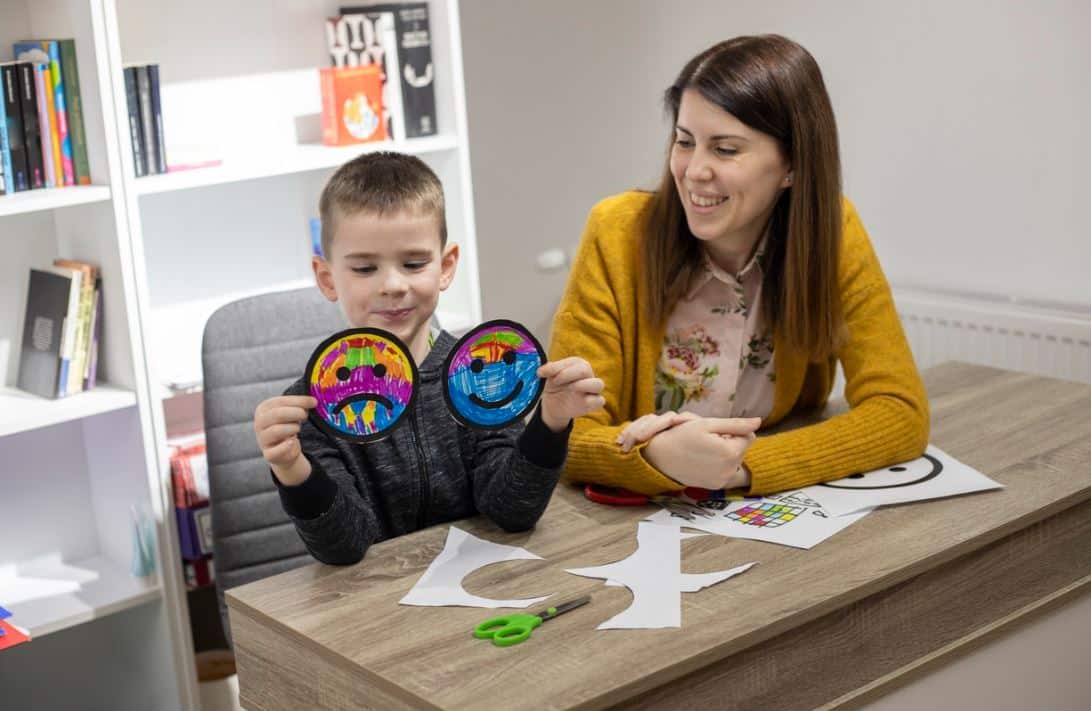
Targeting specific skill areas
Supporting overall development
Building on existing abilities
Creating learning opportunities
Measuring Your Child’s Progress
Regular assessment helps track development and guide intervention:
New Skills Assessment
Monitoring play skills acquisition
Tracking new play behaviors
Observing skill development
Noting developmental progress
Social Growth Evaluation
Assessing social interaction quality
Monitoring peer engagement
Tracking communication development
Observing play relationships
Problem-Solving Progress
Evaluating cognitive development
Monitoring strategic thinking
Assessing flexible problem-solving
Tracking independence growth
Overall Development
Measuring overall well-being
Tracking significant improvements
Assessing comprehensive growth
Monitoring developmental benefits
These measurements help guide future interventions and celebrate successes.
Supporting Children Through Play Activities
Building upon progress, effective play activities include:
Structured teaching tools
Interactive play sessions
Sensory exploration
Motor skills development
Each activity builds upon previous learning while introducing new challenges.
Making Play Experiences Meaningful
To ensure lasting impact, focus on:
Developmental benefits
Positive impact
Significant growth
Child’s unique preferences
This personalized approach helps maintain engagement and motivation.
The Power of Social Interactions
As children progress, enable growth through:
Direct interaction
Peer engagement
Adult guidance
Natural environments
These interactions create opportunities for practicing new skills.
Creating a Foundation for Success
A comprehensive approach to support includes:
Behavior analysis techniques
Positive reinforcement
Structured learning
Allowing children to explore
This foundation supports long-term development and success.
Encouraging Engagement in Play
Building upon established skills, successful strategies involve:
Following the child’s lead
Using desired behavior reinforcement
Creating opportunities for interaction
Supporting natural play development
ABA Therapy and Play Skills: The Path Forward
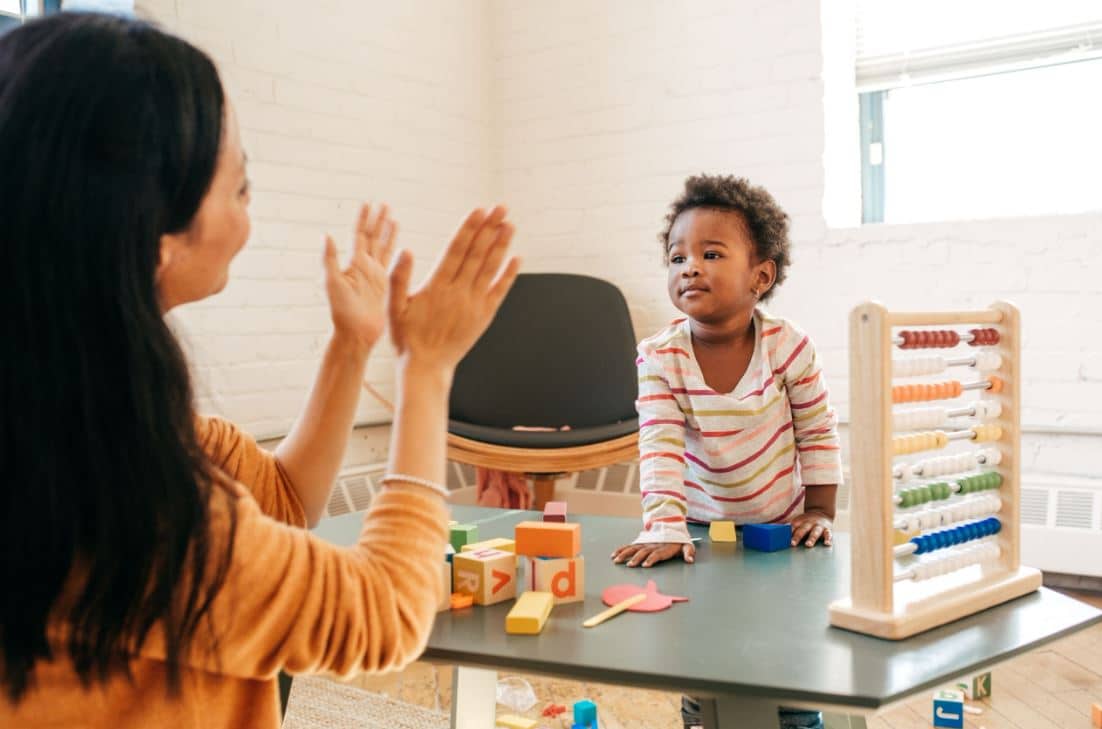
At Move Up ABA, we understand that every child’s journey is unique. Our team of experienced ABA therapists in Maryland specializes in creating personalized play-based interventions that help children thrive. We combine evidence-based ABA strategies with a nurturing approach to help your child develop essential play skills in a supportive environment.
Our comprehensive program includes:
Individual assessment of your child’s current play skills
Customized intervention plans that grow with your child
Regular progress updates and parent training
A warm, welcoming environment that makes learning fun
Ready to support your child’s development through play? Contact Move Up ABA today to learn how our dedicated team can help your child build the skills they need for success. Let us be part of your child’s journey toward meaningful connections and lasting growth.
400 E Pratt St, Floor 8 Baltimore , Maryland 21202, United States
Questions?
Email Us: intake@moveupaba.com
Call Us: (410) 469-1090





